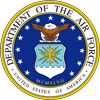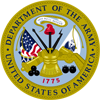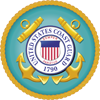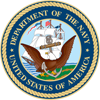 Prev - 61Q Prev - 61Q | Medical Corps Jobs | Next - 60K |
Thoracic Surgeon - 61K

- Active/Reserve:Both
- Officer/Enlisted:Officer
- Restrictions:None
Because of the U.S. Army's world-class medical resources, hundreds of studies and innovative techniques in thoracic trauma, oncology and respiratory medicine have found their start right here. Innovation is just one of the reasons you'll find so many of the world's top thoracic surgeons—as well as respected experts in over 90 other specialties—serving on the U.S. Army health care team.
Examine, diagnose and treat or prescribe course of treatment and surgery for patients with surgical diseases or injuries to the thorax and vascular system, and perform required surgeryConduct and supervise direct patient care, and plan and execute disease prevention and health promotion programsExercise command of medical units as provided by law and regulation Perform special staff functions in health support for commanders at all levelsConduct medical research on diseases of military importance, and conduct, supervise and participate in graduate medical education and training of other medical personnel needed to sustain a robust and readily available medical systemUnique duty positions include: chief, Thoracic Surgery Service; consultant; Orthopedic service; medical school faculty appointment
Active Duty Doctor of medicine or doctor of osteopathy degree from an accredited U.S. school of medicine or osteopathy; foreign graduates may apply with permanent certificate from the Educational Council of Foreign Medical GraduatesCurrent license to practice medicine in the United States, District of Columbia or Puerto RicoEligibility for board certificationCompletion of at least one year of an approved graduate medical education internshipCompletion of a training program in thoracic surgery Between 21 and 42 years of age (may request a waiver, Locate A Recuriter for more information)U.S. citizenshipArmy ReserveIn addition to the above qualifications, permanent U.S. residency is required for Reserve duty officers.
In the U.S. Army, the case diversity surgeons experience in caring for Soldiers and their families far exceeds the medical care environment of the private sector. As an Army Medical Corps officer, you'll have access to the most sophisticated technology, the opportunity to consult with experts in both the military and private sector, plus exceptional professional growth opportunities, including continuing education courses, seminars and conferences. Surgeons may even serve as faculty at one of our prestigious graduate medical education programs. For physicians just starting out, the Army Medical Corps offers first-year graduate medical education, residency and fellowship programs. Qualifying medical school students can also benefit through unique training opportunities exclusive to Army Medical Corps officers. Medical Corps officers will also attend certain military short courses designed to develop and enhance the tactical, technical and operational skills unique to the military environment.
The normal environment of an Army Medical Corps officer's work requires timesensitive problem analysis with an accurate, sound and immediate decision. Ability to operate under stress, apply critical thinking skills, make decisions and translate these skills to battlefield conditions is critical to medical and mission success. Effective patient care requires the proper balance between technical skills and the ability to apply the appropriate treatment or procedure at the right moment. Army Medical Corps officers possess expert knowledge in their area of concentration, patient management, and general support and coordination principles. Surgeons gain this knowledge through continuing medical education and experience sustained by mentoring, additional institutional training, continuous selfdevelopment and progressive levels of assignments within their specialty.
The Armed Services Vocational Aptitude Battery (ASVAB) is an examination that is administered by the United States Military Entrance Processing Command. It is used to determine qualification and helps predict future academic and occupational success in the military.
No ASVAB
ACTIVE BENEFITS:In addition to the many privileges that come with being an officer on the U.S. Army health care team, you'll be rewarded with:
30 days of paid vacation earned annuallyNoncontributory retirement benefits with 20 years of qualifying serviceNocost or lowcost medical and dental care for you and your familyRESERVE BENEFITS:
Health Professional Special Pay Health Professionals Loan RepaymentNoncontributory retirement benefits at age 60 with 20 years of qualifying serviceLowcost life and dental insuranceTravel opportunities, including humanitarian missionsBoth active and Reserve duty officers enjoy commissary and post exchange shopping privileges; a flexible, portable retirement savings and investment plan similar to a 401(k); may receive pay for continuing education; and specialized training to become a leader in their field.
See the whole list of Army Occupational Specialties here
To learn more about the Army's rank structure, see our complete list of Army ranks.
To see a list of military medals and decorations that can be earned by servicemembers in the Army and other branches of the military, see our list of military decorations and medals.








































































































































